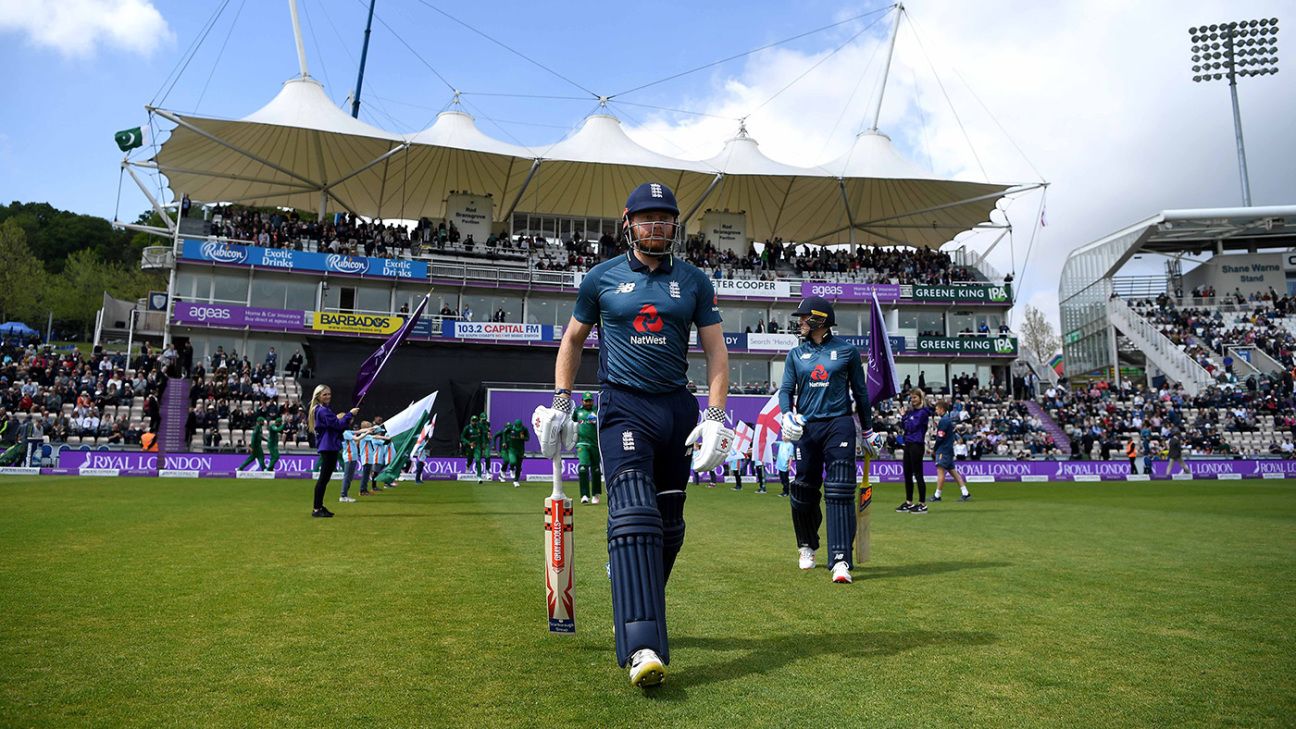
All players and support staff at the elite level of sport must be allowed to opt out of a return to action during the Covid-19 pandemic, according to government guidelines released today.
The policy, which covers all elite, adult athletes in the UK, was unveiled among a raft of protocols issued by the Department for Digital, Culture, Media and Sport (DCMS) on Wednesday as part of an attempt to coordinate the resumption of elite sporting training ahead of a return to competitive sport.
While it would appear to bring the return of sport - at least at elite level - closer, it does make clear that a return to group training - "social clustering", as the document puts it - will only be allowed as a second step once Public Health England (PHE) permits it. Step one will see athletes training alone or at a safe distance from support staff or fellow players.
Among the guidelines is a demand that players and support staff must "have actively opted in" and "understood the sport specific risks" before they return to training. And it states all involved should be entitled to opt out "at any time without unreasonable steps being taken against them consequently".
"All athletes and support staff should be engaged in a 1:1 check-in prior to resumption of organised step one training to ensure they have understood the sport specific risks and mitigations, training site protocols in place, are physically and mentally well enough to engage in return to training and have actively 'opted in' to engaging in step one return to training," the document states.
"It will be for individual sports to agree with their athletes any conditions for their return. All athletes and staff should also be clear on their route to 'opt out' of the organised training environment under Step One conditions at any time without unreasonable steps being taken against them consequently."
ALSO READ: Closed doors open opportunities for fringe players - Mo Bobat
The ECB issued similar guidance to players ahead of the tour to Bangladesh in 2016. Eoin Morgan and Alex Hales both opted out due to security concerns without it compromising their long-term role in the team.
On this occasion, players will be briefed in detail on what conditions inside a training camp might look like before they are asked to consider their involvement. While few of the players - Jack Leach is a possible exception - would be considered vulnerable, the mental and physical welfare of relatives will also come into consideration. It may be relevant that England returned from their Sri Lanka tour not because of fear of infection in the country - the UK has, at this stage, been hit harder by the virus - but because it was felt that, at a time of anxiety, players wanted to be with their families.
The DCMS recommendations, which have been compiled after consultation with PHE and major sporting governing bodies, come as the ECB are expected to out-line individual training plans for prospective England players on Thursday. Some players - notably the bowlers - are expected to return to training within days, with a hope that the squad will be able to train together in the coming weeks. The ECB remain keen to fulfil as much of the international season as possible with July 8 the preferred start date.
As a first step, however, it will be necessary for all involved to adhere to current social distancing guidelines. Players and support staff will also need to be "formally appraised of the risks" of their involvement and must be screened for Covid-19 symptoms every time they arrive for training. Initially, at least, training sessions may feature one player, one coach and one medic with social distancing observed. Only as a move to "Step Two" will group training be permitted. No date has been published to indicate when step two might be anticipated.
"A move to Step Two will be characterised by the allowance of a level of 'social clustering' within the training environment where small groups of athletes and staff will be able to interact in much closer contact (e.g. close quarters coaching, combat sports sparring, teams sports tackling, equipment sharing, etc)," the document states. "The additional guidance necessary for operating under step two will be finalised and communicated once when the government has agreed to move to this step, following advice from PHE and medical experts that it is safe to do so."
The ECB will also be required to demonstrate protocols about cleaning equipment and training facilities between usages and guarantee "minimum but necessary staffing levels" at every training session which is "calculated to balance training need, distancing protocols and reducing risk of burden to the NHS".
There is continuing sensitivity in cricket that any return to action should not come at the expense of medical attention provided to essential workers. To that end, all support staff - including cleaning staff, drivers and caters - should be issued with personal protective equipment (PPE) and have been as well appraised of the potential risks as the athletes they are serving.















 Phone: (800) 737. 6040
Phone: (800) 737. 6040 Fax: (800) 825 5558
Fax: (800) 825 5558 Website:
Website:  Email:
Email: 






